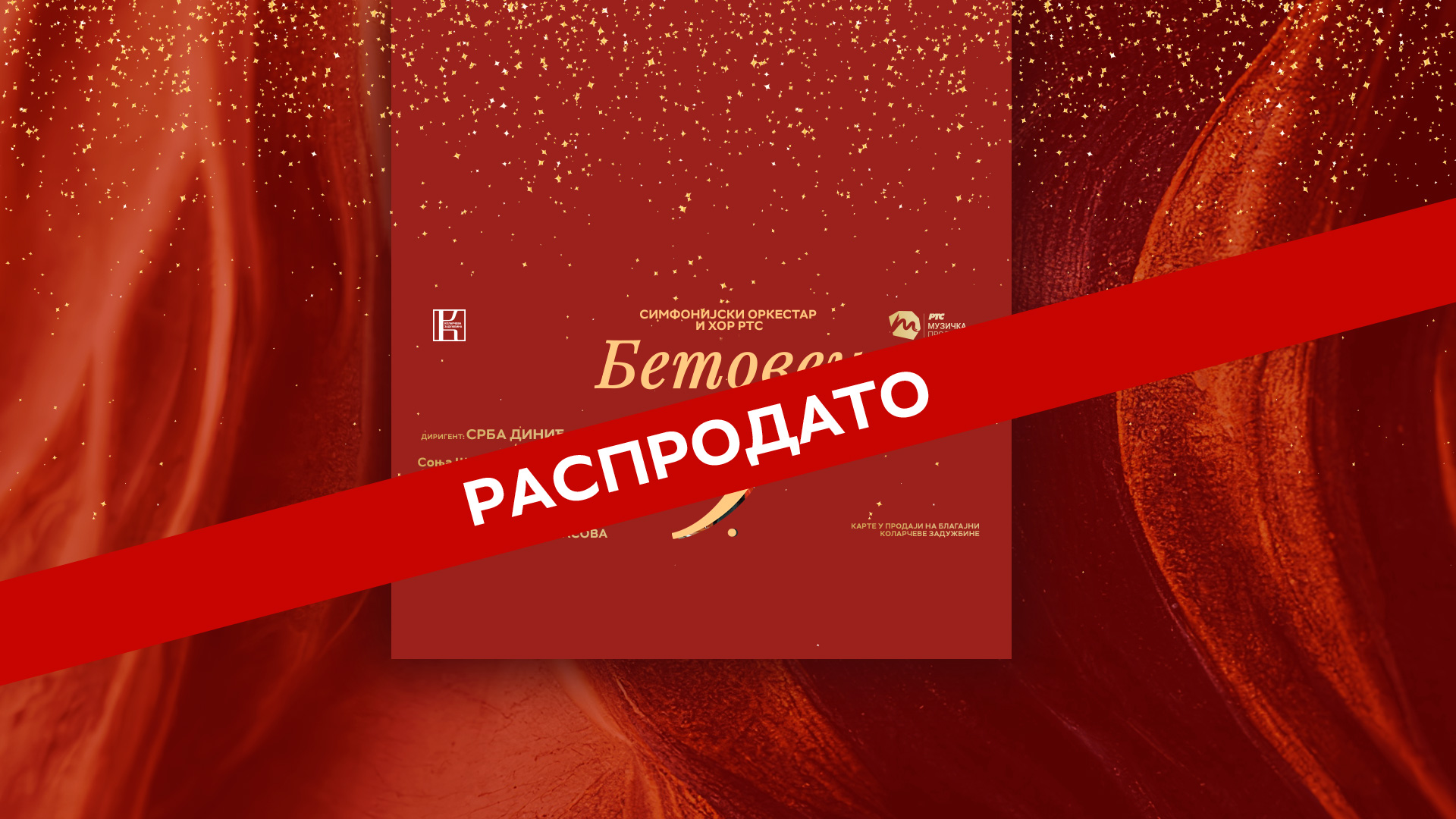
BEETHOVEN’S NINTH SYMPHONY FOR THE DAY OF THE GREAT HALL OF THE KOLARAC ENDOWMENT
A spectacular concert by the RTS Choir and Symphony Orchestra will mark the day of the Great Hall of the Kolarac Endowment – on February 4. On this occasion, one of the most monumental pieces of musical history will be performed – Ludwig van Beethoven’s Ninth Symphony. Soprano Sonja Šarić, alto Jelena Končar, tenor Stevan Karanac, and bass Goran Krneta will perform as soloists at the concert, while Srba Dinić will be the conductor. The concert starts at 8:00 p.m., and tickets are on sale at the box office of the Kolarac endowment.
The Ninth Symphony occupies a unique place not only in Beethoven’s oeuvre but in the development of symphonic music in general. Although the sound of the work indicates that it is a solemn composition, Romain Rolland noticed that its “solemnness” is not only in the music but in the performance, in itself, which represents a true ceremony. Its monumentality is certainly given by the fourth movement, in which the composer introduced the choir for the first time in a symphonic work. Beethoven chose for that occasion the famous Ode to Joy by the German poet and writer Friedrich Schiller, whose text he adapted, choosing parts that had a strong message. They are sung by soloists and a choral ensemble, realizing parts through which the composer, with the voice as the most refined, but also the most emotionally powerful instrument, celebrates man, the human community that stands firmly on this earthly soil, wanting to send a message of peace among all people with the timeless words of Schiller’s Ode. It is interesting that the premiere in Vienna was conducted by Beethoven himself, who appeared in that role after twelve years. Although his hearing was already significantly impaired, he led the biggest performing ensemble up to that time, guided by his inner rhythm, but also by great musicians, who themselves were carried away by the fact that they were standing before one of the greatest creators of that time. In the audience, young Franz Schubert and Karl Czerny listened to him with admiration.



